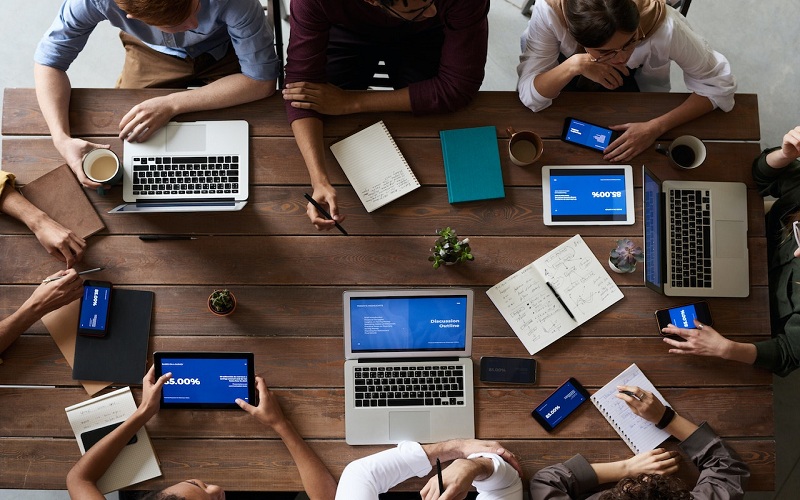A hotel management system consists of several software elements that cooperate to optimise operations and enable efficient management of a hotel’s assets. An efficient hotel management system frees managers to concentrate on providing exceptional customer service and expanding the company by centralising data and automating repetitive operations. The main elements of a hotel management system are examined in this article along with how they might improve property management for hotel owners.
Bookings and Reservations
Bookings and reservations are among the main features of any hotel management system. Potential visitors can browse room rates and availability online and make bookings directly through the hotel website thanks to an online booking engine that is integrated with the property management system. During the booking process, this booking component records the guest’s details, payment details, preferred room type, and any special requests.
After that, the reservation data is instantly synchronised with the property management system, making it simple for front desk staff to check visitors in when they arrive. To help with forecasting and planning, managers can also see impending reservations, hotel blocks, group bookings, and other information. When reservations are made automatically online via a booking engine, errors are decreased and time is saved over human reservations. It also offers visitors a handy self-service option.
Check-in/check-out and front desk
The property management system (PMS) serves as the focal point for payments, check-ins, check-outs, and other transactions at the front desk. With a few clicks, staff members can swiftly search for guest profiles, reservations, and payment information. In addition, the PMS manages the creation of folios, payment acceptance, and receipt printing.
In certain situations, visitors can check in without going through the front desk by using mobile apps with contactless alternatives. The PMS generates receipts, handles final payments, and computes balances during check-out. Additionally, it expedites check-outs for hurried guests. In general, the front desk element simplifies procedures and enhances the visitor experience at the points of check-in and check-out.
Room Management and Inventory
Based on reservations and statuses, the room management module of the PMS keeps track of all room kinds’ current availability. It makes it simple for maintenance and cleaning staff to indicate if a room is inhabited, under maintenance, or cleaned.
To monitor performance indicators like average daily rate, revenue per available room, and occupancy rates, managers can also access thorough room inventory data. After that, they can use data to inform their judgments about demand forecasts, upselling, and pricing. Compared to manual tracking systems, automated room status updates, and inventory reports save time and minimise errors.
Maintenance and Housekeeping
These backstage activities are coordinated in part by the housekeeping and maintenance departments. Mobile device room assignment lists based on check-out and cleaning schedules are available to housekeeping workers. Additionally, they digitally document cleaning statuses.
Regarding upkeep, the PMS generates work orders for fixes and monitors problems through to completion. How to manage hotel, Managers may see what maintenance has to be done. For simpler reporting, technicians can capture work details using mobile devices. When combined, these modules maximise efficiency by streamlining communication between various operating teams.
Revenue Management and Accounting
The PMS interfaces with accounting software and offers tools for managing budgets, tracking spending, and generating reports for financial reporting and analysis. Key performance indicators such as daily revenue, costs, and net operating income are visible to managers in real-time.
The revenue management system optimises room pricing strategies based on demand estimates and booking trends. Based on demand for each type of room, it suggests adjusting rates during various booking windows to maximize revenues. These elements provide actionable business analytics to assist data-driven management decisions when combined with the PMS.
Relationship Management for Customers (CRM)
All guest profiles and interaction histories are collected in one location by an integrated CRM component. It enables tailored advertising depending on previous visits and purchasing patterns. The CRM keeps track of reward tiers and redemption activity to support loyalty programs as well.
Employees can quickly retrieve visitor preferences to provide individualised care. Managers can concentrate their retention efforts by gaining insights into successful client segments. Long-term client connections and repeat business are fostered by automating CRM tasks within the hotel system.
Numerous benefits of a hotel management system include improved decision-making and operational efficiency. Staff members can concentrate more on providing excellent guest service by automating monotonous duties related to housekeeping, reservations, check-in and out, and other areas. Managers can quickly resolve issues from a mobile device thanks to real-time data access from any place.
Comprehensive business intelligence reporting provides information on underperforming departments or high-performing areas that require improvement. Compared to manual techniques, automating activities through an integrated platform lowers labor costs and minimizes human error. T
The most significant benefit of a well-executed hotel management system is that it ensures that visitors have a flawless experience from their initial online contact to checkout and beyond. It raises customer happiness, and satisfied customers are more likely to be loyal and spread the word about a business.
Intelligence for business and reporting
Sophisticated hotel management systems provide strong business analytics and reporting capabilities. With only a few clicks, managers can create basic, ad hoc, and customised reports on important KPIs like revenue, occupancy, and average daily rate.
Dashboards provide performance tracking in real-time on a single screen. Interactive data visualisations provide managers with insights without requiring technical knowledge. Analysing reports in-depth promotes continuous development by assisting in the discovery of patterns, opportunities, and solutions to problems.
Combining with Different Systems
The seamless integration of POS systems, spa booking software, restaurant reservation systems, and other software with a fully integrated hotel management system is possible. This enables employees to view pertinent guest information and reservations from a single platform across all service locations.
To improve cooperation, it also makes data sharing across departments easier. For better service, restaurant servers can see the room numbers and preferences of their customers. All things considered, integration offers a comprehensive visitor experience and gives management control over every aspect of all activities on a single, unified platform.
Conclusion
In conclusion, the fundamental elements of a hotel management system operate in the background to assist efficient management, optimise procedures, and streamline operations. Hotel PMS systems enable managers to expand the business profitably while delivering great service by automating repetitive operations, centralising data access, and offering real-time business insight. A fully integrated system selected to meet the unique requirements of the property guarantees the highest possible return on investment.





